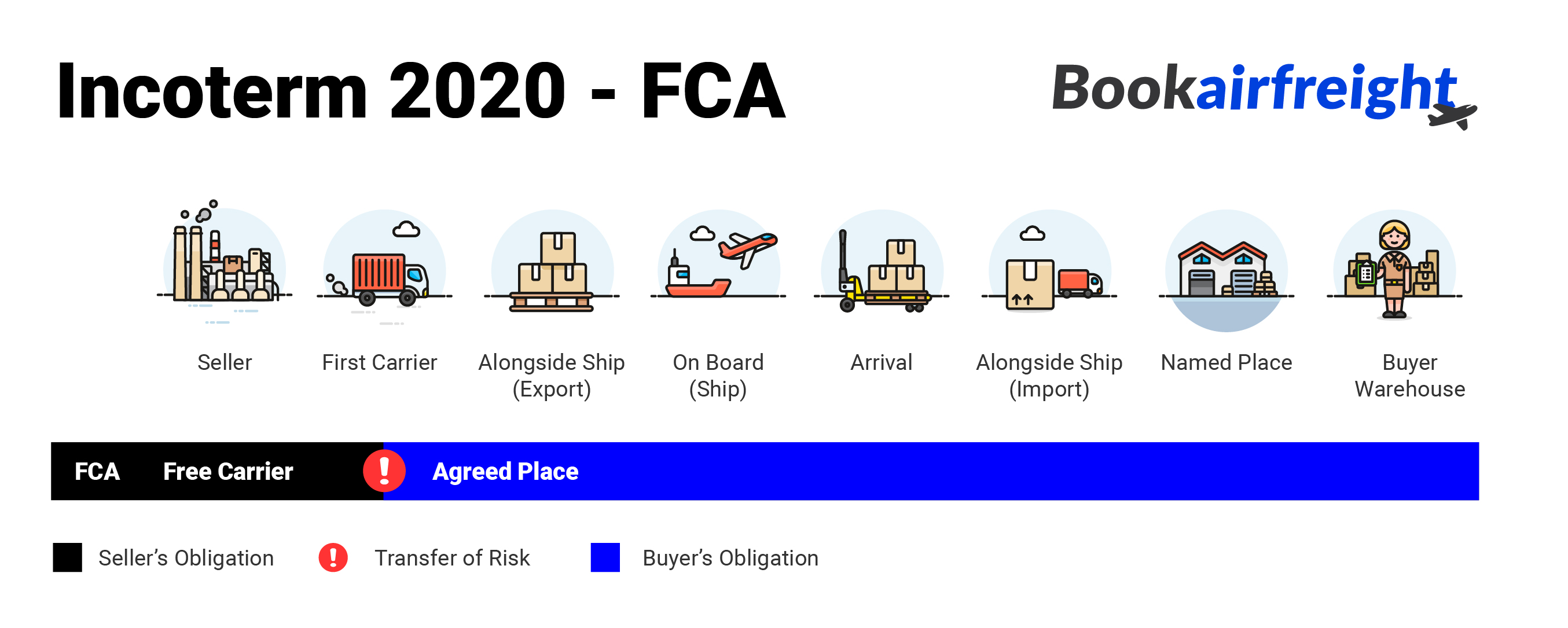What is FCA?
FCA is one of the 11 International Commercial Terms (Incoterms) used in trade where the seller is responsible for export clearance and delivers the goods to a named place.

The ‘named place’ can be one of 2 different options in FCA:
1. The seller’s premises (factory or warehouse). In this case, the seller will load the goods onto the transport vehicle that will carry them to the ship or airplane.
2. The carrier’s warehouse or terminal. In this case, the seller will not unload the goods.
🚨 Point of Risk Transfer
It depends on the 'named place'
1. The seller's premises. The risk transfers to the buyer when the goods are loaded onto the truck.
2. The carrier’s warehouse or terminal. The risk transfers to the buyer when the goods are delivered (but not unloaded).
When should you choose FCA?
FCA terms are most commonly used when shipping containerized goods, i.e. goods packed into shipping containers.
FCA is preferable when the buyer wants to have control of costs during export and international transportation through a nominated freight forwarder.
A quick example:
Cost allocation. Who pays for what under FCA?

Proud Co-Founder and CEO of Bookairfreight. Shortly after starting to work in the world of logistics, I was astonished at how difficult and time consuming it was for businesses to get their hands on a simple air freight quote. I saw this as an opportunity to really make a difference in people’s lives, and felt like I had to do something. It was the spark that lit the fire of Bookairfreight’s creation.





































































